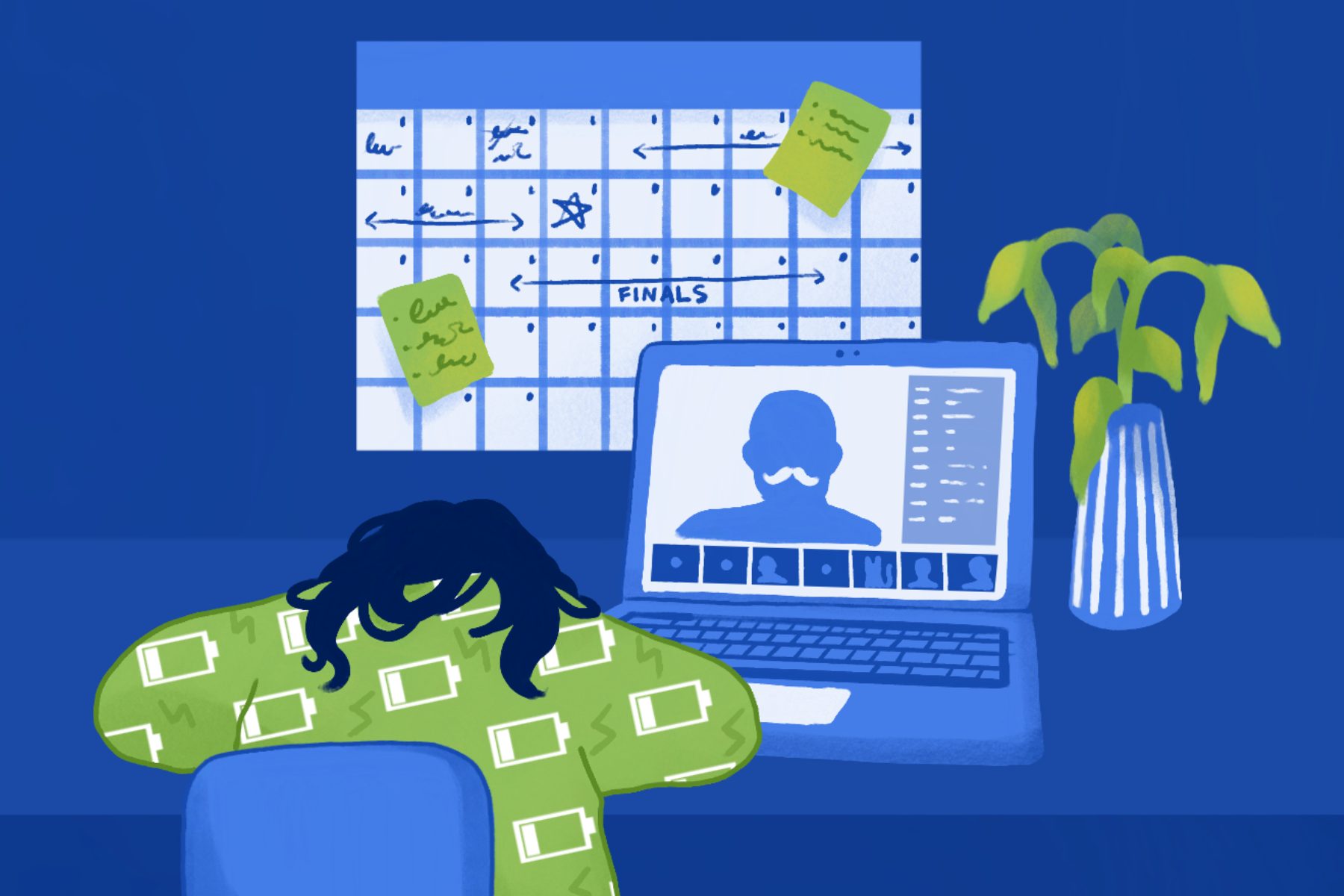When the pandemic arrived, our world abruptly changed in fundamental ways. People began to work from home, our favorite restaurants were either shut down or limited to take-out and delivery, and the streets in metropolitan areas such as New York City became unprecedentedly empty.
For at least 95% of college students, however, no change was more drastic than our classes moving online. All of these changes were so unexpected that we couldn’t possibly prepare for them. In the spring of 2020, a large percentage of college students were forced to move back to their hometowns while continuing to fulfill all the requirements for their now-virtual courses. Because of the suddenness of this shift, numerous colleges adopted a mandatory or at least optional pass-fail grading policy, which was supposed to alleviate some of the pressure that students were facing.
In the current semester, the threat of the pandemic has waned slightly, and we are more prepared for the associated realities of life, including our online courses. However, our day-to-day experiences are still radically different than they were before.
Taking online courses at home can be distracting and pose a serious challenge to our self-discipline. This required increase in self-control consumes additional mental energy and causes fatigue. Attempting to maintain healthy boundaries between school and life further aggravates the problem. In the virtual setting, students are less immersed in the classroom environments that once demanded their full attention and need to exert more conscious effort to resist the urge to shop online, mindlessly check social media or even watch YouTube videos.
So you may be wondering what we students can do to avoid fatigue and stay productive. I would like to share some tips I learned from my own personal experience over the past few months. First and foremost, I have found that the key to staying motivated and focused in virtual classes is to be a proactive learner rather than a passive one.
To stay on track, it is important to find purpose at both the micro- and macro-levels of our lives. Micro-level goals are ones we aim to achieve in a relatively short time frame, whereas macro-level goals place more emphasis on the long term, such as visions about our ultimate career and life pursuits. It is important that we identify our personal micro- and macro-level goals and keep them in mind throughout the school year, as they can serve as motivational catalysts, driving us to be proactive as students.
I have observed these concepts play out in the realm of acting. According to the well-known Stanislavski system, to effectively immerse oneself in a particular role, an actor must first identify the “objectives” and “super objectives” of the character.
For example, an actor who is portraying a strict elementary school teacher might construct the following objective: “I want my students to ace their final exams.” Then the character’s “super objective” might be: “I want my students to have a bright future, and I aspire to fulfill the true meaning of being a teacher.” Actors must use these goals as a compass that guides all mental and physical activity during a performance.
This system can be used to inform the way we approach our new learning environment. We can use our personal compasses to navigate the stream of countless distractions and to arrive at greater concentration and productivity. If we can figure out “why” we are taking our online courses and need to focus on them, then all of our own behaviors will be shaped according to these principles.
With our own unique layers of objectives in mind, acting in accordance with our aims will become automatic, almost second nature. Thus, our brains will selectively filter out information that is unlikely to help us achieve our goals, and we will have to expend less energy overall. This process of filtering is conducive to achieving what positive psychologists refer to as a state of flow, in which we feel energized, mesmerized and fully focused, forgetting oneself in the enjoyment of a task.
What about specific measures we can take? First, I believe a key to concentrating in classes is to immerse yourself in the events of the virtual classroom as much as possible. To do so, it will be helpful to be a proactive classroom contributor, either by answering questions posed by your professor or a classmate, or by asking questions yourself.
Active engagement in class enables us to occupy our mental space with the contents of classroom discourse, rather than allowing our flow of attention to be disrupted by noises from traffic outside the window or small talk between your parents in the living room.
Furthermore, because speaking up in online courses makes us feel we are being observed and evaluated by our classmates and professors, the stakes become higher because human beings are, at our core, social animals. We will expend higher levels of mental energy in the class environment and consciously push ourselves to stay focused because we know others are watching; social psychologists refer to this phenomenon as the social facilitation theory.
Our increased engagement in class will be incentivized after this small step of “achievement.” Through active participation, we will become more motivated in class and hope to perform even better in the future.
Second, we can further simulate in-person learning environments by creating study groups with our classmates. Silicon Valley, for example, successfully incubates innovative startups partly because it convenes aspiring entrepreneurs in one geographic location and creates a large network where people can inspire each other to constantly think about breakthrough ideas.
We can create a similar environment as college students. Studying in groups can create a learning community that binds us together. To be more specific, studying with other people instills in us a group identity and a sense that we are still on track to earn our academic credentials even though the format of our courses is different now. We may be easily distracted by stuff at home, but constantly checking in with our classmates and challenging each other with questions will make it easier for us to keep up and even work harder.
Third, if possible, try to maintain a healthy routine and schedule. After finalizing class timetables, we can organize our personal agendas around them and do our best to stick to our daily plans. Schedules are beneficial because they get our bodies and minds accustomed to a certain pattern. This not only makes planning for our everyday lives less laborious, but it also conditions our brain to experience automatic stimulation every time we attempt to accomplish a routine task.
Fatigue from taking online courses and fixing our eyes on an electronic screen all day might be inevitable, but it is not unconquerable.

















